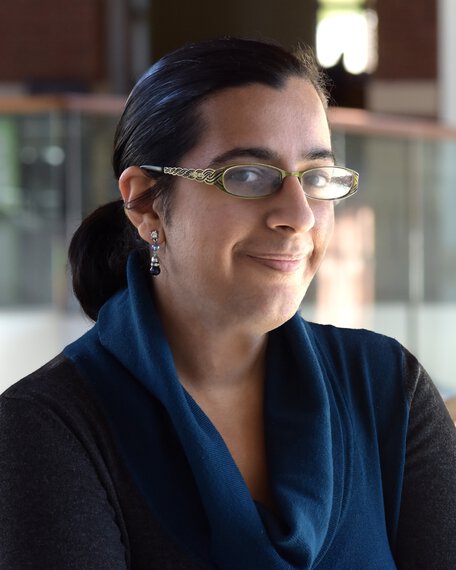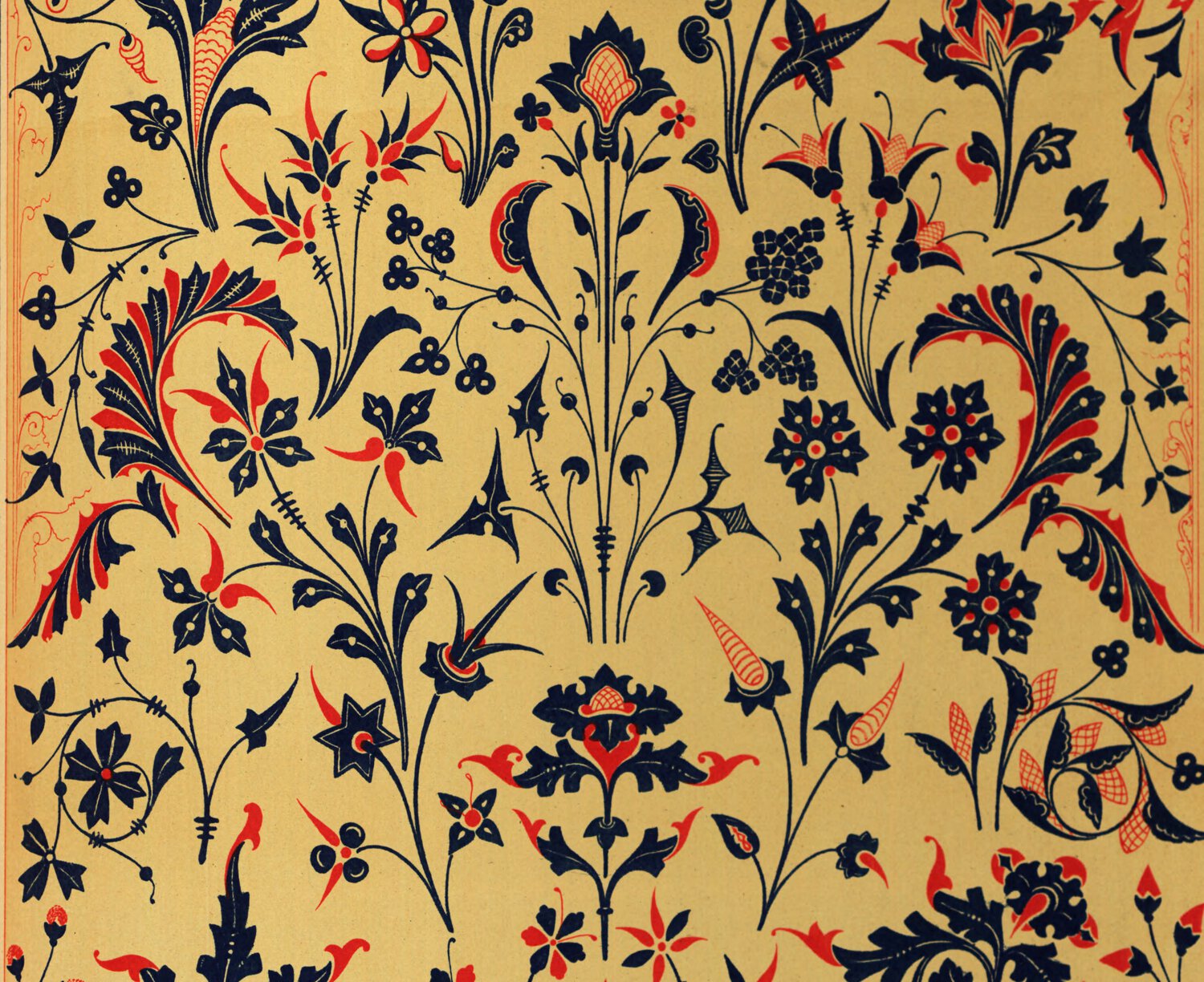Associate Editors
Overview
Undisciplining the Victorian Classroom (UVC) expanded in 2023 by recruiting Associate Editors to work with the Directors to expand the project's offerings and share organizational knowledge and responsibilites. All former contributors to UVC, the Associate Editors share a commitment to creating accessible, antiracist pedagogy for the Victorian classroom.
Associate Editor Biographies
 Ava Bindas (University of California Davis) is a PhD candidate in English with a designated emphasis in Feminist Theory and Research at the University of California Davis. She recently published “Editing, Education, and Imitation in Indian Missionary Conversion Accounts” as part of the One More Voice “BIPOC Voices in the Victorian Periodical Press” project, which examines instantiations of individual voices in nineteenth-century missionary periodicals accredited to indigenous Indian speakers who narrate their conversions to Christianity. Currently, she serves as an Associate Editor for Undisciplining the Victorian Classroom (UVC), and is currently writing a dissertation about Victorian novels of the recent past and how minor modes of history imagine and mediate gendered and racialized constructions of nineteenth-century ordinary life. Pronouns: she/her.
Ava Bindas (University of California Davis) is a PhD candidate in English with a designated emphasis in Feminist Theory and Research at the University of California Davis. She recently published “Editing, Education, and Imitation in Indian Missionary Conversion Accounts” as part of the One More Voice “BIPOC Voices in the Victorian Periodical Press” project, which examines instantiations of individual voices in nineteenth-century missionary periodicals accredited to indigenous Indian speakers who narrate their conversions to Christianity. Currently, she serves as an Associate Editor for Undisciplining the Victorian Classroom (UVC), and is currently writing a dissertation about Victorian novels of the recent past and how minor modes of history imagine and mediate gendered and racialized constructions of nineteenth-century ordinary life. Pronouns: she/her.
 Kristen L. Figgins (Assistant Professor of English and English Education Coordinator, Mississippi University for Women) specializes in nineteenth-century British literature, critical animal studies, and adaptation. Her current research involves tracing how developments in natural science and animal rights philosophy are adapted in transhistorical literature. You can read her recent research in such publications as Literature/Film Quarterly, Adaptation Before Cinema (Palgrave, 2023), and her co-edited book, Boom or Bust: Narrative, Life, and Culture in the West Texas Oil Patch;(Oklahoma University Press, 2021). Pronouns: she/they.
Kristen L. Figgins (Assistant Professor of English and English Education Coordinator, Mississippi University for Women) specializes in nineteenth-century British literature, critical animal studies, and adaptation. Her current research involves tracing how developments in natural science and animal rights philosophy are adapted in transhistorical literature. You can read her recent research in such publications as Literature/Film Quarterly, Adaptation Before Cinema (Palgrave, 2023), and her co-edited book, Boom or Bust: Narrative, Life, and Culture in the West Texas Oil Patch;(Oklahoma University Press, 2021). Pronouns: she/they.
 Jude Fogarty is a postdoctoral researcher in equity and inclusion at the University at Buffalo (UB). While a Victorianist by training, they work in UB's school of engineering and applied sciences, where they run a faculty writing and mentorship program, conduct research on technical writing and engineering equity, and teach in the department of engineering education. Their research interests include Victorian literature and culture, histories of science, medicine, and psychology, affect theory, antiracist and disability pedagogies, and STEM (Science, Technology, Engineering, and Math) justice, equity, and inclusion. Their current projects include research in Victorian studies examining how formal "failures" in literature enable exploration and expression of non-normative embodied experiences, and collaboration on a trans inclusion initiative for faculty in STEM. Pronouns: they/them/theirs
Jude Fogarty is a postdoctoral researcher in equity and inclusion at the University at Buffalo (UB). While a Victorianist by training, they work in UB's school of engineering and applied sciences, where they run a faculty writing and mentorship program, conduct research on technical writing and engineering equity, and teach in the department of engineering education. Their research interests include Victorian literature and culture, histories of science, medicine, and psychology, affect theory, antiracist and disability pedagogies, and STEM (Science, Technology, Engineering, and Math) justice, equity, and inclusion. Their current projects include research in Victorian studies examining how formal "failures" in literature enable exploration and expression of non-normative embodied experiences, and collaboration on a trans inclusion initiative for faculty in STEM. Pronouns: they/them/theirs
 Indu Ohri teaches introductory survey courses on literature and the visual arts from the Neolithic Age to the modern day as part of CGS's Boston-London Program. Her research and teaching interests include Victorian and Edwardian women’s ghost stories, Victorian authors of color across the British Empire, and the intersection between digital humanities and pedagogy. Her current book project examines how the ghosts in women’s supernatural fiction reflect various unspeakable social concerns of late Victorian and early twentieth-century Britain. She is working with a group of scholars on UVC project to create model lesson plans on Black Caribbean authors, specifically Mary Seacole and Mary Prince. Her work has appeared in Victorians Institute Journal Digital Annex, Preternature, The Wilkie Collins Journal, and Victorian Studies. Pronouns: she/her
Indu Ohri teaches introductory survey courses on literature and the visual arts from the Neolithic Age to the modern day as part of CGS's Boston-London Program. Her research and teaching interests include Victorian and Edwardian women’s ghost stories, Victorian authors of color across the British Empire, and the intersection between digital humanities and pedagogy. Her current book project examines how the ghosts in women’s supernatural fiction reflect various unspeakable social concerns of late Victorian and early twentieth-century Britain. She is working with a group of scholars on UVC project to create model lesson plans on Black Caribbean authors, specifically Mary Seacole and Mary Prince. Her work has appeared in Victorians Institute Journal Digital Annex, Preternature, The Wilkie Collins Journal, and Victorian Studies. Pronouns: she/her
Tile/Header Image Caption
Jones, Owen. “Middle Ages No. 1.” The Grammar of Ornament, Day and Son, Lithographers to the Queen, 1856, p. Plate LXVI. Public domain. Like other images featured on the Undisciplining the Victorian Classroom site, this image serves as an example of nineteenth-century British impulses to simultaneously silo and covet aesthetic production from other nations, especially when done so historically. The plate caption as a “Middle English” print blurs the distinction between the Italian and English influence, claiming it as an English artifact despite its shared Italian roots.
Page Citation (MLA)
“Associate Editors.” Undisciplining the Victorian Classroom, 2023, https://undiscipliningvc.org/html/about/associate_editors.html.
